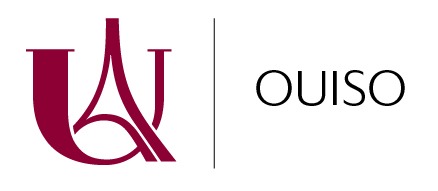[vc_row][vc_column][vc_column_text]Paris, 17th of December 2020,
Dear Colleague, Dear CEO of IRD,
In June 2020, our observatory published on its website a news item about the signing of research conventions between the IRD and some Moroccan communities or institutions relating to research conducted in the “Moroccan Sahara” according to the terminology used by the IRD communication documents and notably by the IRD representation in Morocco. These research programmes have been set up by different IRD’s UMRs and in different fields.
As this research was in fact carried out in Western Sahara, a non-autonomous UN territory awaiting decolonisation, partially and illegally annexed by the Moroccan state, a territory in a state of war, we alerted the IRD representative in Morocco, Renaud Fichez, and asked for a copy of these conventions. The latter told us that the case was in the hands of the IRD’s legal department. Since then, we have received no news from the IRD representative in Morocco, nor from the IRD’s legal department.
If these conventions confirmed the use of this erroneous terminology, it would mean that the IRD openly considers that this territory is officially under the sovereignty of Morocco, which would constitute a very serious breach of international law, all the more so as neither France nor the rest of the international community (apart from D. Trump’s declaration of 10 December last) recognises this sovereignty.
For an institution such as yours, which affirms that it “defends an original model of equitable scientific partnership with the countries of the South and a committed, interdisciplinary and civic-minded science”, whose core business is cooperation for development, and which has a strong presence on the African continent, such an offence and such an assumed support for a colonisation enterprise would deeply tarnish its image with the countries of the South and its partners, and more broadly the image of French diplomacy in the Maghreb and in the world.
Madam Chief Executive Officer, you will und erstand how shocking and unacceptable it is for researchers conducting research on this region of the world, often in contact with populations in exile as a result of this decolonisation conflict that is dragging on, to see a research institution as respectable as the one you preside over trample international law underfoot, with total disregard for the populations living in this region and their “development”, and in contradiction with the conflict resolution process conducted by the United Nations for many years.
We are convinced that you adhere to the idea that scientists – including those (archaeologists, biologists, etc.) who do not work directly with the human populations living in this region – and the institutions to which they belong have an ethical duty of the first importance towards these same populations who have suffered too much from exile, repression and colonisation of their land.
Mrs. Chief Executive Officer, we ask you today to shed light on these conventions, which were probably signed illegally and with contempt for the populations of this territory, and we hope that the IRD Ethics Committee will take up this matter in complete independence, because these conventions are a very serious breach of scientific deontology.
Therefore, in accordance with Articles L. 300-1, L. 300-2, L. 311-1 and 311-9, taken together, of the Code of Relations between the Public and the Administration, we hereby ask you to forward a copy of the disputed agreements. If you refuse to do so, we will be obliged to refer the matter to the Commission d’accès aux documents administratifs.
Pending your reply, please accept, Madam President and dear colleague, our respectful greetings.
The Scientific Council of the International University Observatory for Western Sahara: Joanna Allan (Northumbria University), Enrique Bengochea (University of Lisbon), Larosi Haidar Atik (Universidad de Granada), Juan Carlos Gimeno Martín (Universidad Autónoma de Madrid), Jacob Mundy (Colgate University), Raquel Ojeda (Universidad de Granada), Carlos Ruiz Miguel (Universidad de Santiago de Compostela),
The OUISO steering committee: Marjorie Beulay (University of Picardie Jules Verne), Sébastien Boulay (University of Paris-UMR CEPED, as part of the CNRS delegation at the Institute of African Worlds), Meriem Naïli (University of Exeter), Camille Tanné (University of Paris)[/vc_column_text][/vc_column][/vc_row]
